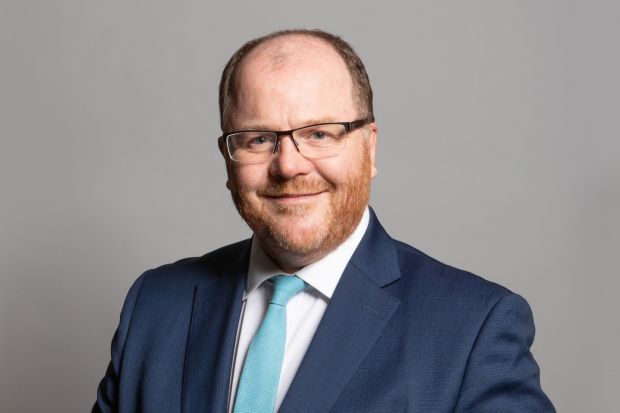Science minister George Freeman has suggested he will shortly bring forward plans for “really strong fellowships” outlined in the UK government’s Pioneer alternative to Horizon Europe.
In a speech to Vitae’s annual International Researcher Development Conference in Manchester, Mr Freeman said he was keen to establish some “really bold fellowships” that would allow the UK to recruit top international scientific talent in the face of fierce competition for these researchers.
“The world is hungry for talent – we cannot allow our best people to go abroad, which is why we are setting out really strong fellowships here,” explained Mr Freeman in a recorded address on 25 September. He recalled meeting a British researcher at one of Germany’s Max Planck Institutes who had been awarded a 10-year fellowship, including funding for a technician and a postdoc researcher.
That duration of funding offered the job security and resource that top talent now expected, but it would also free researchers from the grind of grant applications, said Mr Freeman, saying that “more dynamic, more adventurous and more agile [offers] that support people in a competitive landscape” were needed.
Ambitious fellowships of up to 10 years outlined in the UK government’s Plan B to Horizon Europe could be launched later this year, continued Mr Freeman, despite the £2-billion-a-year cost of joining the European Union’s flagship research scheme.
“We have to set up more generous offers, as we set out in our Pioneer programme – we are back in Horizon but I want us to continue to invest in really bold fellowships here in the UK,” he said. “Watch this space for some really important announcements.”
Speaking to Times Higher Education, Mr Freeman said prime minister Rishi Sunak’s announcement of £150 million for 50 five-year Green Future Fellowships and a “similar amount for AI fellowships” was a “sign of the times”.
Mr Freeman said he was also reviewing the “concierge system” to ensure that international researchers did not get bogged down in immigration red tape when seeking to come to the UK. He said he was also keen to review government rules that prevented staff at a public sector research establishments (PSREs) from earning above Whitehall-set salary limits.
“At some PSREs we have really talented people who are returning to industry because business is offering significantly higher salaries. Some are prepared to stay in the public sector, despite these offers that are three or four times higher [than their current salaries], because of other things…so we are talking to the Cabinet Office about…getting some flexibility here,” said Mr Freeman.
Register to continue
Why register?
- Registration is free and only takes a moment
- Once registered, you can read 3 articles a month
- Sign up for our newsletter
Subscribe
Or subscribe for unlimited access to:
- Unlimited access to news, views, insights & reviews
- Digital editions
- Digital access to THE’s university and college rankings analysis
Already registered or a current subscriber? Login








